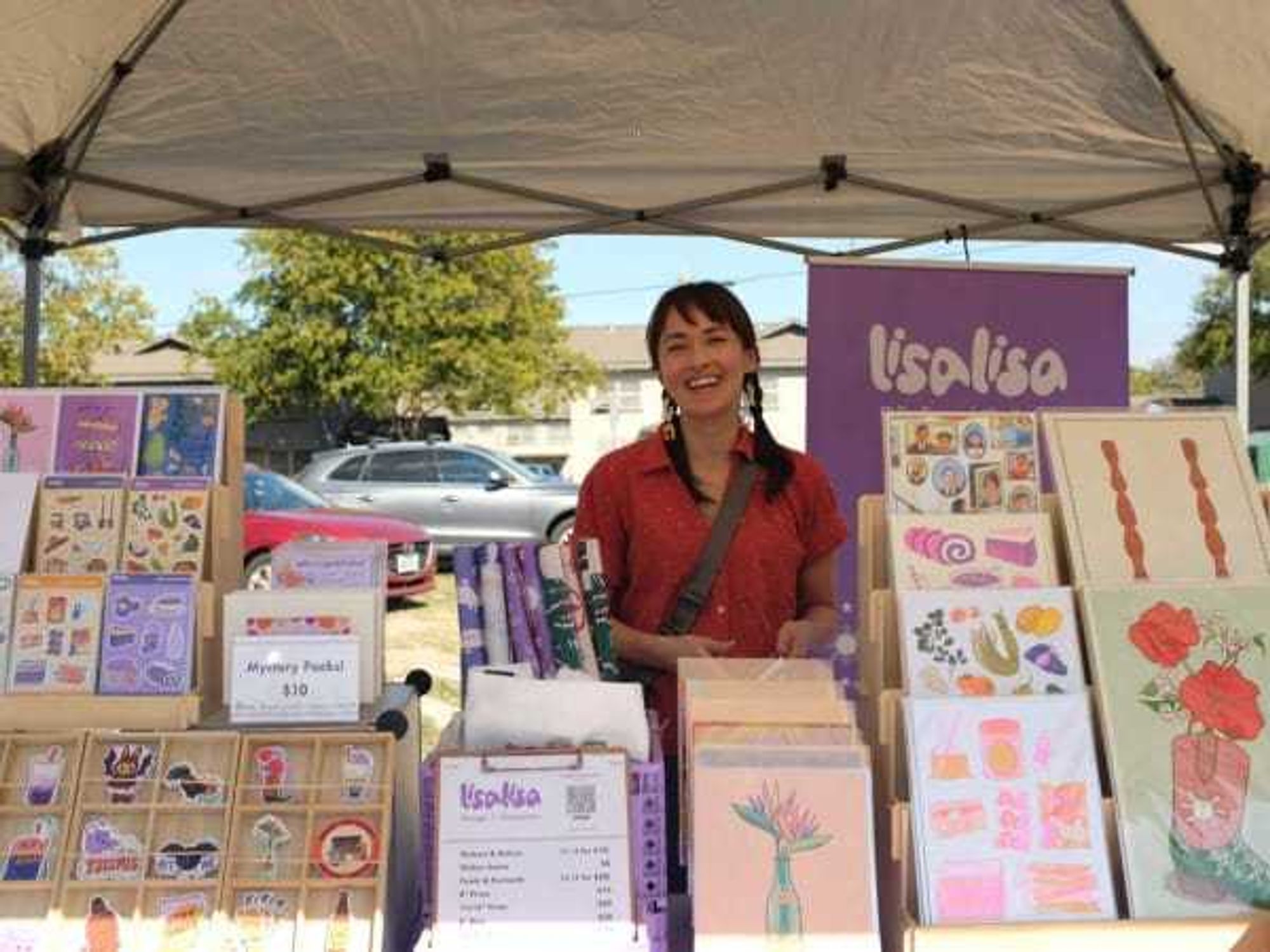poetry series kick-off
Interview with the author: Nick Courtright previews his debut poetry collection,Punchline, exclusively on CultureMap
This month, CultureMap Austin is proud to present an exclusive poetry series from local writer Nick Courtright, featuring excerpts from his forthcoming debut collection, Punchline. The book will be available next year from Gold Wake Press, and we're excited to give you a special preview of this volume, which was a finalist for The National Poetry Series.
Before we get the series started, we present this conversation with the writer, a teacher and editor in addition to a poet. Courtright's work has appeared in The Southern Review, Boston Review and The Kenyon Review Online, among many others, and a chapbook, Elegy for the Builder’s Wife, was published last year by Blue Hour Press. In Austin, he teaches at St. Edward's and Concordia Universities; he's also the Interviews Editor for the Austinist. When he's not busy doing all that, he blogs on his personal site, Thought Machine.
His forthcoming collection is highly anticipated by fans and peers; writer Nicky Beer says of Punchline:
"By turns elliptical and aphoristic, macrocosmic and microcosmic, timeless and contemporary, Punchline is not a book of poems for those who merely want to be diverted or amused; this work is for readers who consider poetry the natural sibling of philosophy. Nick Courtright’s finely-distilled poems mine the frustrating unknowableness of the world, and celebrate its exhilarating mystery with elegance, compassion, and imagination."
We spoke to the writer about Punchline, his favorite poets, how fatherhood has affected his writing and more. Don't forget to check back on Tuesday, November 8th for the first in a month-long series of excerpts from this National Poetry Series finalist.
---
Why is the book called Punchline?
It started off as a relatively simple response to a formal decision—each of the four main sections of the book is named after the end of a famous quote—the “punchline” of the quote, as it were. For example, part two is called “Invent the universe,” which is the end of the Carl Sagan quote “If you wish to make an apple pie from scratch, you must first…” So that was the initial concept.
Eventually, though, it became clear that Punchline stood for the whole book, and, in its own way, for our whole existence on earth. It is kind of a funny thing we’re doing here on this planet, right? When I stand in my backyard at night, I can look up and see Jupiter, and my phone is the thing that taught me that—isn’t that crazy? And when I turn on the faucet in my bathtub, water comes out. And, if I were a betting man, I’d say it’s a pretty safe gamble that every single one of us is 1) made out of atoms, and 2) destined to have our living bodies betray us.
So, despite the fact that our circumstance of being is, from many perspectives, deeply, deeply unfunny, at some point you just have to sit back and laugh at how little we know, how much we think we know, and how it all matters both immensely, and possibly, not at all.
When did you begin writing poetry?
Among poets, I get the feeling I came to poetry kind of late. I was always a writer, building stories on a regular basis starting in elementary school, but it wasn’t until I was halfway through college that I started to view poetry—the formal options, the liberty to leave narrative—as the form most interesting to me. Before that, I thought poetry was for squares.
I think this widespread impression of poetry being lame-o is largely caused by its being marketed terribly by the last couple generations of teachers. It’s often been introduced either as something obscure and impenetrable, marred by nonsense phrases like “iambic pentameter,” or as some sort of weepy “emotional” thing. And although it can have all those elements at work, good poetry is neither boring nor crybaby-ish.
For me, it’s the freedom of the form, its innate “slowness,” and the possibilities enabled by linebreaks and rhythm, that are most important. As writer Forrest Gander puts it, poetry “is the discourse in which the greatest energy is still possible,” and I tend to agree.
What poets inspire you?
From history, very influential have been William Blake, Whitman of course, Lorca, Rumi and Wallace Stevens. Of more recent vintage, Frank Bidart and Robert Bly have been hugely inspiring, Bidart for his intellect and formal highjinks, Bly for his wisdom. And even though Franz Wright is undoubtedly a curmudgeon, it would be wrong for me not to acknowledge the impact his work has had on mine.
But just as much as the work of these luminaries has inspired me, so has the determination and daring of currently practicing poets such as John Gallaher, Nicky Beer, Trey Moody, Mary Biddinger and Austin’s own Carrie Fountain. Without their perseverance in practicing this art serving as an example for me, forging ahead would be all the more difficult.
You’ve been published in online journals; how do you think the internet has impacted the small-press publishing world—and specifically poets?
I spent some time early on very skeptical of the online journal, feeling it inferior to the romance of actual paper. Eventually, though, it did start to become clear that although the online venues may not necessarily carry the same prestige as places T.S. Eliot published, if you actually want people to know your work exists, at least some online presence is a must.
In general, I think the internet has done the same thing for poets that it has done for most everything else: it has allowed for more knowledge of what’s out there, and thus, more out there, but it has also allowed for a kind of information sickness, and added difficulty in separating the great from the merely good. As John Gallaher wrote to me, a lot of good books get “lost in the foam.” So that’s always a concern, and one especially relevant for small presses.
Has being a father changed the way you write?
Besides there being a lot more children in my poems, I think the largest changes have been in habit. Rather than writing all the time, but with no real structure to my writing schedule, now I am more inclined to work on discrete projects. For example, nearly all of Punchline was composed in a one-month period in May 2010—I had told myself I was going to draft a book in a month, and I knew that most poetry books are about 5,000-10,000 words, so I resolved to write 30,000 and pare it down from there. So that’s what I did, in between changing the diapers of a one-year-old.
But, really, the biggest change of fatherhood on my writing has just been in regards to its scope—it used to be that my musings were just that: mine. But now they include my son and my wife, and all the issues of mortal and universal importance are now seen through the lens of their lives as well as my own. So I’d have to say that all the “philosophical/meaning-of-life” things I address in my work I take much more seriously.
You’re also a teacher; are there any writers or works that you go out of your way to include in your curriculum?
I’ve taught a lot of different types of courses, and my schedule is scattered across several schools, so there aren’t too many works that find themselves consistently making the syllabus. But some things I do always jump at the opportunity to teach are anything by Jorge Luis Borges—that guy is brilliant, and always screws with both students’ minds and my own in the all best ways—and philosopher-of-sorts Ken Wilber—he’s a troublesome character, but some of the ideas in his work are just too good not to share.
I also love teaching anything that pushes people to consider the “bigger picture” of our life here on earth. Things like the Bhagavad Gita, the Tao Te Ching, the Bible, the latest neurology, any TED video that tells you what technologies the ridiculous future holds—if it touches on any of the big three questions (where did we come from, why are we here, what happens after we die), that’s exactly the type of mess I want to get into. And I suppose Punchline is an attempt to confront just a little slice of that mess.
---
Nick Courtright’s debut full-length collection, Punchline, a finalist for the National Poetry Series, is due out next year from Gold Wake Press. Check back on Tuesday, November 8th for the first in a month-long series of exclusive excerpts from the collection.

 Asian vendors gathered for Tayo Na launch part, which celebrated the area's
Asian vendors gathered for Tayo Na launch part, which celebrated the area's  Asian Season ATX celebrates Asian Heritage Month at Austin Beerworks.Photo by Joi Conti Photography
Asian Season ATX celebrates Asian Heritage Month at Austin Beerworks.Photo by Joi Conti Photography